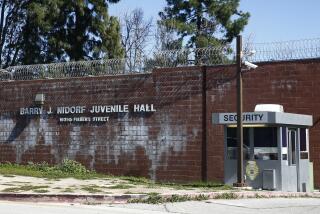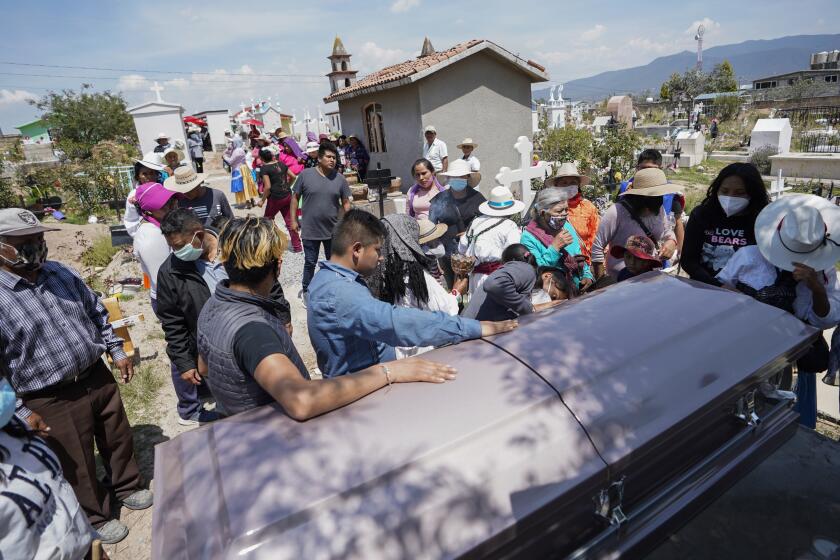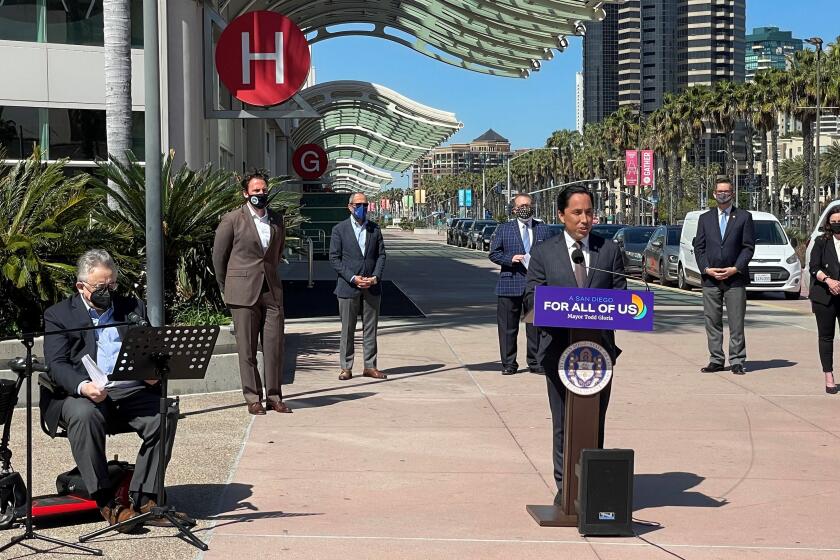San Diego County eliminates juvenile justice fees and debts
SAN DIEGO — San Diego County will lighten the financial burden on families with a child involved in the juvenile justice system.
Supervisors last week unanimously approved eliminating fees the county assesses on juveniles through the system, as well as ending the collection of juvenile delinquency debt in San Diego County.
Young people who interact with juvenile courts and their families often amass hundreds or thousands of dollars in debts — for costs such as days in custody, legal assistance and community supervision — which can then follow them for years after they leave the system.
County staff said there are about 9,100 families in San Diego County who owe fees. National experts have found such fees correlate with greater recidivism and have no positive impact on public safety.
Supervisors Greg Cox and Kristin Gaspar, who co-authored the proposal, said the fees barely affect county public safety revenue, and the new ordinances will provide overdue relief to some families.
The county spends $1 for every $1.67 it collects. It has collected 6% of past fee debts since 2018, county staff wrote in a letter to supervisors.
Cutting the fees and forgiving the debt would reduce revenue to county departments by about $300,000 in the current fiscal year and $1.5 million in the next fiscal year, the letter states.
“As a county we continue to make meaningful investments to transform our juvenile justice system,” Gaspar said last week. “Yet for many families, they are still facing significant debt as a result of their child’s incarceration, legal representation and community supervision.”
The adoption of both proposals, which were backed by the Public Defender’s Office and the North County Gang Commission, brings San Diego County in line with a state law that went into effect in January 2018 but wasn’t codified into county law because of a clerical error.
California Senate Bill 190 ended the assessment of juvenile fees statewide, but it did not apply to fees that were assessed before 2018 — prompting another bill that is in the Legislature, SB 1290, which would eliminate past juvenile debt.
Supervisors said the ordinance changes enable the region to better respond to changes at the state level and help the county align with advancing a more positive youth development model in its juvenile justice system.
In 2017, the San Diego County Probation Department began working with Georgetown University’s Center for Juvenile Justice Reform to bring the county more in line with national best practices related to family restoration, youth rehabilitation, and developing a more positive youth development philosophy that focuses less on detention.
Cox said the action represents a step toward advancing more positive youth development and is in line with other actions the county is taking, such as redesigning its Juvenile Hall to be more of a rehabilitative campus.
He said the county has significantly cut down on the number of youth in custody. The Probation Department has gone from a little more than 7,000 in custody in 2011 to under 2,700 in 2019.
“As a county we are switching our attention from detention to community-based and front-end services that serve youth closer to home,” Cox said. “These are significant steps to bring us in alignment with best practices throughout the country.”
Clark writes for the San Diego Union-Tribune.
More to Read
Updates
2:05 p.m. May 27, 2020: This story has been updated to reflect the county’s latest youth in custody numbers.
Sign up for Essential California
The most important California stories and recommendations in your inbox every morning.
You may occasionally receive promotional content from the Los Angeles Times.











